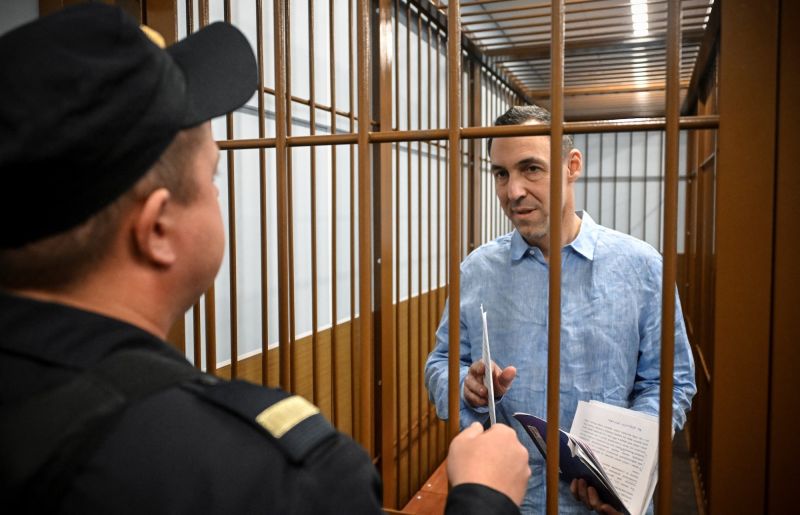
French Researcher Vinatier Jailed in Russia as ‘Foreign Agent’ for Three Years
In a recent turn of events, French researcher Bruno Vinatier has been sentenced to three years in a Russian prison following accusations of working as a foreign agent. This case has sparked international concern and debate, raising questions about academic freedom, international collaboration, and diplomatic relations.
Vinatier, who has been conducting research on Russian environmental policies for several years, found himself caught in the crossfire of geopolitical tensions between France and Russia. The Russian authorities accused him of being a spy and collaborating with foreign intelligence agencies to undermine Russian interests. While Vinatier has adamantly denied these allegations, the court’s decision to convict him has significant implications for the academic community worldwide.
At the heart of this case lies the delicate balance between academic research and political sensitivities. Scholars and researchers often navigate complex geopolitical landscapes in pursuit of knowledge and understanding. However, events like Vinatier’s imprisonment highlight the risks and uncertainty that come with such endeavors. The case serves as a stark reminder that academic freedom is not always guaranteed, especially in environments where political considerations overshadow intellectual pursuits.
The sentencing of Vinatier also raises concerns about the future of international collaboration in academic research. Cross-border partnerships and exchange of ideas are essential for advancing knowledge and addressing global challenges. However, cases like this can create a chilling effect on such collaborations, as researchers may fear repercussions for engaging with colleagues from different countries. This, in turn, could hinder scientific progress and limit the exchange of diverse perspectives and expertise.
Moreover, the diplomatic fallout from Vinatier’s case underscores the fragility of international relations in today’s interconnected world. The incident has strained relations between France and Russia, leading to diplomatic tensions and potential repercussions for bilateral cooperation in various fields. In an era where diplomacy plays a crucial role in addressing shared challenges, incidents like this can jeopardize efforts to build trust and find common ground between nations.
As the academic community and policymakers grapple with the aftermath of Vinatier’s imprisonment, it is crucial to reaffirm the principles of academic freedom, intellectual exchange, and respect for diverse perspectives. Safeguarding these values is essential for fostering a climate where researchers can pursue knowledge without fear of political reprisals. It is also vital for governments to recognize the importance of supporting academic collaboration and upholding the rights and protections of scholars working across borders.
In conclusion, Vinatier’s case serves as a stark reminder of the challenges facing researchers in an increasingly complex and politically charged world. It highlights the need for greater vigilance in protecting academic freedom, promoting international collaboration, and upholding the values of intellectual inquiry and exchange. As the global community reflects on this incident, it is imperative to reaffirm the importance of academic integrity, freedom of thought, and respect for scholars who dedicate their lives to advancing knowledge and understanding, irrespective of political considerations.
